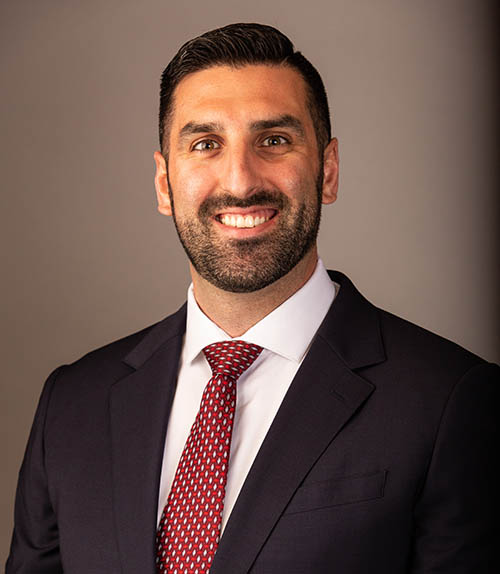You asked, our certified financial planner, Bob Protesto, answered! Here are 5 common questions that individuals, parent and small business owners are concerned about when it comes to their finances, answered by BHCU’s certified financial planner!
1. I want to create a bucket plan to prepare for retirement — what should be on there?
I always have the framework of Three Buckets that I like to see clients have funded when they are preparing for — or living in — retirement. The earlier you can start funding these buckets as you prepare for retirement, the better off you’ll be.
- Bucket 1: Cash Reserve
While working, it’s advisable to have 3-6 months of expenses put away in an Emergency Fund. While in retirement and not earning a paycheck, the number should be closer to 1-2 years of expenses. This should be money you can count and can access without any penalties and without a large tax hit — think money markets, savings accounts, BHCU’s high-yield iSAVE Savings account, Share Term Certificates (CDs) and conservative brokerage accounts. - Bucket 2: Income
Once you decide to retire and stop earning a paycheck, guess what you need? A paycheck! Social Security is the main (and only) source of retirement income for most. If you’re lucky enough to have a pension, you’re better off than most. In an ideal world, Bucket 2 would cover the costs of any essential lifestyle expenses in retirement — annuities and income producing investments can help make up any difference. - Bucket 3: Growth
With advancements in modern medicine, we, on average, are living longer than generations before us, so you must plan for the possibility that you could be retired for 30+ years. Are you prepared for your expenses to more-than-double in retirement? For example, a stamp cost $0.25 in 1990; today it’s $0.55. Items in Bucket 2 historically do a terrible job of keeping up with inflation, and far too often I see retirees being too conservative with their money — this is why you must have a portion of your money set aside for long-term growth or else inflation will eat away at your savings.
2. When should I prepare a will?
The short answer? Yesterday.
The long answer? Well, as the old saying goes, the only certainties in life are death and taxes, that’s why having a will before you’d ever think you’d need one is so important. Anyone who has dependents/children, who owns a property/assets or who wishes to leave money to loved ones or a charity must, must, must have a will. A will is one part of the Estate Documents that you should have when preparing for end-of-life — it is what directs what happens to your estate (i.e., what you own) and care of any minors you’re responsible for at the time of your passing. If you die without a will, the courts will decide for you. It is also important to create any Powers of Attorney, Healthcare Proxys, Trusts and update beneficiaries on any Retirement Accounts.
*Disclaimer: Not to be taken as legal advice. Please contact an estate attorney for more guidance.
3. What tips can you share to help parents save for their kids’ education?
Education expenses (and the mountains of student loan debt) are one of the hot button topics of today. According to finaid.org, college expenses have been increasing at a rate of 8% per year. That means the cost for a newborn to attend college when he/she’s 18 will be TRIPLE the cost today. I don’t know what the future of the college landscape holds, but I have to believe some sort of reform will happen. Regardless, it’s always smart to hope for the best and prepare for the worst. A couple of smart moves to consider are:
Start a 529 College Savings Plan ASAP: 529 Plans are state-sponsored plans where you save after-tax dollars and distributions are generally tax-free if you qualify for education expenses. With the Tax Cuts and Jobs Act of 2017, you can use up to $10,000/year for private K-12 and higher education expenses. Be sure to research any additional tax benefits your state may or may not offer to use a 529 Plan. BONUS TIP: Use time to your advantage. Start funding the Plan as soon as the child is born (or even better, before!).
Consider the trades: College isn’t for everyone and we are in dire need of good, skilled tradesmen and tradeswomen.
Consider community college for 1-2 years: This will knock out most of the “core” curriculum classes, so you can considerably reduce your overall expenses.
529 college savings plans are offered by BCG Securities, Inc., member FINRA/SIPC, BCG Securities, Inc. is located at 51 Haddonfield Road, Suite 210, Cherry Hill, NJ. You should read the prospectus and/or 529 plan program description carefully and consider the investment objectives, risks and charges and expenses carefully before you invest or send money. The prospectus and 529 plan program will provide complete information about these subjects.
To obtain a prospectus, contact your BCG Securities, Inc., Representative.
4. Should I do a Roth or Traditional IRA/401k?
A Traditional IRA or 401k is funded with pre-tax dollars, grows tax-deferred, and qualified withdrawals are typically taxed as ordinary income in retirement. A Roth IRA/401k is the opposite — it’s funded with after-tax contributions, but it still grows tax-deferred. However, qualified withdrawals are tax-free in retirement. With that being said, the catch with Roth IRAs is that not everyone is able to contribute to one. Once you earn over a certain amount per the IRS, you are “phased out” of contributions.
Anyone who can contribute to a Roth IRA should. Anytime the IRS tries to limit or stop people from something, it typically means it’s a good deal. Furthermore, the main question is: which way do you think taxes are going in the future? I’ll give you a hint: It’s not down. As of this writing, the US is $23.1 TRILLION dollars in debt, and they’re going to need the tax revenue at some point to start paying it down.
With the Roth IRA or 401k, you can pay the taxes now at the known tax rates and have everything grow tax-deferred. As long as you’ve had the account for 5 years and you reach age 59.5, all withdrawals are tax free. The benefits don’t stop there, either. With a Roth IRA, there are no Required Minimum Distributions at age 72, distributions don’t count toward Medicare Part B IRMAA and beneficiaries receive Roth IRAs income-tax free.
*As always, please consult your CPA/tax-preparer for specific guidance.
5. I own a small business. Which Retirement Plan should I have?
If you’re like many small business owners, running your own business is an all-consuming endeavor. In the face of everyday demands, choosing a retirement plan for your business can become a casualty. The idea of establishing a plan could evoke worries about complicated reporting and administration. Here’s a primer on the 3 main types of small business Retirement Plans:
401k Plan: This is the most common type of company sponsored Retirement Plan, to the point where “401k” is often synonymous with “Retirement Plan.” The benefits of a 401k Plan are that they typically have higher contribution limits, meaning you and employees can contribute more. They’re also fairly flexible and able to be amended to change with the growing needs of your business. Plus, you can set a company match and vesting schedule to incentivize employees. The negatives, however, are that 401k Plans can be costly and time consuming to run. Administration & Recordkeeping fees can run a few thousand dollars each year, and the plan requires year-end compliance testing & filing with the IRS.
SIMPLE IRA: These plans are designed specifically for smaller businesses — you must have fewer than 100 employees to be eligible. They are very straightforward and can be a very cost-effective option for employers. Unlike the 401k, there is no administration or filing with the IRS, so you save money there. Additionally, a SIMPLE IRA Plan requires a 3% company match or flat 2% contribution to all eligible employees.
SEP IRA: This can be established by most business entities, however, a vast majority are used by sole proprietors. The advantages of the SEP begin with the flexibility to vary employer contributions each year from 0% up to a maximum of 25% of compensation, with a maximum dollar contribution of $57,000 in 2020.
If your financial question was not address in thia Q&A with our financial certified planner, don’t worry! Contact BHCU today, and our team members will be happy to help you.

Meet Our Advisor
Bob Protesto, CFP®, CRPC®
A Delaware County native, Bob Protesto is a fully licensed Certified Financial Planner™ professional and comes to BHCU with over 10 years of experience in helping individuals and business owners achieve financial success. We encourage you to sit down and talk with Bob to see how he can help you plan for financial success.





